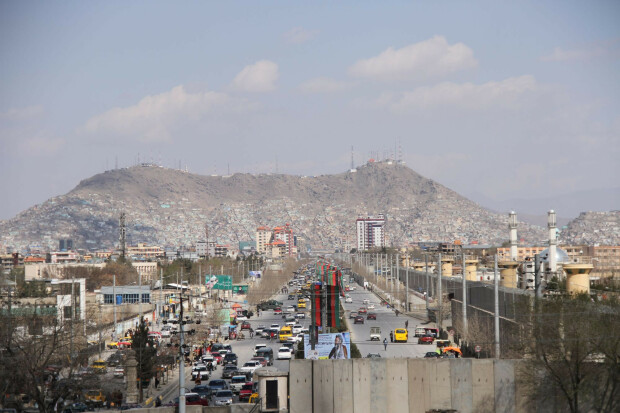
The return of the Taliban
The return of the Taliban
(20 November 2021)
Hello everyone,
There is so much to tell about life here. Stories of 40 years of living in war and what it does to people. First the Soviets, then the Taliban, then 20 years of Americans, and now the Taliban again. But there are also stories of mothers and many babies being born every day at the Médecins Sans Frontières hospital in Khost, the Afghan province near the border with Pakistan.
Two weeks ago, while I was in the car from Khost airport to the hospital, I saw a group of girls aged 8-9 on the street, clearly wearing school uniforms. "Phew," was my initial reaction, at least they are still going to school. But then I saw Said, our Afghan head of logistics, whom I have known for 10 years. Said has a 14-year-old daughter whom he is extremely proud of, a smart girl who was doing well in school, and he hoped she would become a doctor to help people.
My relief turned out to be premature... "Dr. Séverine, the dream is over," said Said.
Since the Taliban took power here in August, all secondary schools for girls have been closed. And so far, there is no news of reopening. The inevitable consequence of this is a lack of midwives, nurses, and female doctors, but that doesn't seem to matter.
I am in contact with the female doctors we trained here through WhatsApp and Facebook, and three of them are at home without work. Mahjan fled to Pakistan with her family and is unable or not allowed to work there. Shafiqa is in Kabul and is afraid to leave her house, and Atifa is in Mazar-i-Sharif in the North and is also not allowed to work.
Not much has changed in Khost since August 2021. In terms of security, it has even become quieter (unlike many other provinces in Afghanistan) because when the Americans were still here, there were many attacks and internal conflicts. Now the situation is simple: the Taliban are in power.
We fear what will happen in the coming months, but for now, we can continue our work due to our long-standing relationship with all parties in the conflict (including the Taliban). And for the people here, I think we are a tiny ray of hope. We stayed while many organizations left in August, and we plan to stay for at least the next 5 years. The flow of funds from the international community has stopped (nobody likes to give money to the Taliban regime). This has resulted in many local people having no income for the past 5-6 months and the very fragile healthcare system collapsing because there is no medication and healthcare workers are not getting paid anymore. Médecins Sans Frontières has had more work since the Taliban came to power.
Zia, one of our young national doctors, told me that her husband, who worked for the previous government, has not been paid for 5 months, so the entire family depends on her salary. And she is not the only woman in the region who supports her family with her MSF salary. "That must make you very proud, girl," I say, and she smiles.
Afghanistan is the country where women have the worst safety, education, and rights in the world after Yemen. A few days ago, I saw a crying woman, around 45 years old, brought in by the midwife. The midwife looked very concerned. The story that unfolded was heartbreaking: the woman's husband had been in Dubai for work for the past 5 months, and she had been a victim of rape 3 months ago and hadn't had her menstruation for the past 3 months. She feared she was pregnant. In Khost, women can be stoned if they bring shame upon their families, such as being unmarried and pregnant or being pregnant by another man. With a pounding heart, I performed an ultrasound, but there was no baby to be seen, and thankfully, her pregnancy test was negative. I had never been so relieved that someone wasn't pregnant.
The woman held onto me and cried on my shoulder, relieved. Then she asked me to prescribe her something, vitamins or paracetamol, because her family knew she had gone to the hospital with a health problem, and if she returned without medication, her family would become suspicious. We gave her some tablets and wished her the best. That was all we could do for her. Even in cases of rape, women are often blamed.
Yet, we try to give some hope for the future. We ensure that women and babies survive childbirth, receive free medication, cesarean sections, and blood transfusions when needed. As a result, the vast majority of our patients go home with a healthy baby. We provide employment and a salary to 400 Afghan people, 250 of whom are women, ensuring their families can survive.
What will happen in Afghanistan next month: no one knows. We simply hope for the best.
Séverine